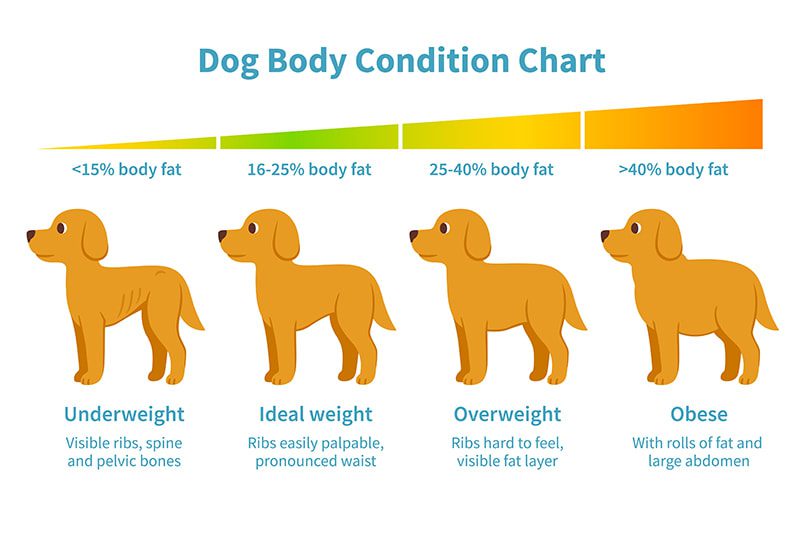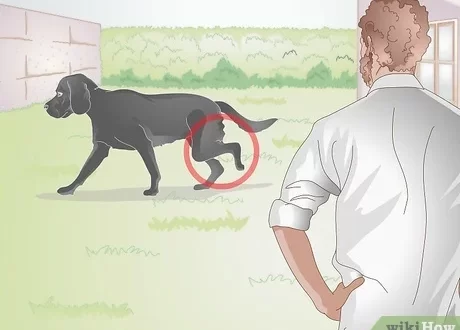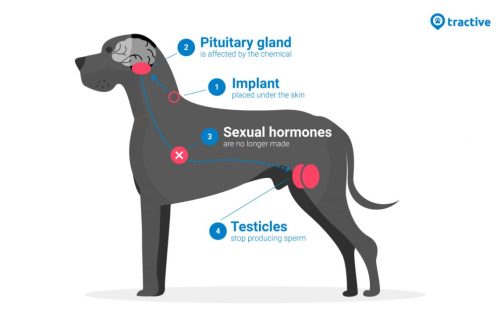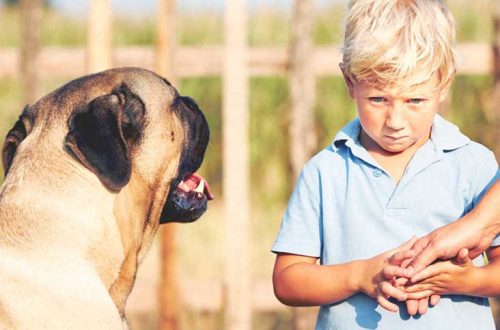
What should I do if my dog is overweight?
Just like any person, a dog can easily gain extra pounds. Unfortunately, overweight dogs live shorter lives and their quality of life deteriorates. They are also more susceptible to a number of diseases, such as diabetes, heart, lung and skin diseases, and arthritis.
Therefore, to maintain the health of the dog, it is extremely important to monitor its weight.
What to look for
Dogs vary greatly in size and shape, so it can sometimes be difficult to tell if your pet is overweight. When you stroke your dog’s sides, you should be able to feel his ribs, but they should not be visible. When the dog is stretching (for example, while jumping), the ribs must be visible. And if you look from above, then the waist should clearly stand out above the hips.
In breeds with a wider and more muscular body, excess weight is not so easy to detect. Your veterinarian can make an accurate assessment of the dog’s weight and physical condition, determine if the dog is overweight and for what reason.
Why is my dog overweight?
Most dogs gain weight as a result of overfeeding, and it’s easy to see why this happens. When training, they are often given treats as a reward, and in addition, we are aware of the happiness our pet gives a treat and cannot resist.
Discuss with your veterinarian the possibility of correcting weight with a special diet.
Your veterinarian may recommend one of Hill’sTM Prescription DietTM products for weight management. Specifically designed to help you lose weight and control it and effectively satisfy hunger, Prescription DietTM r/dTM Canine reduces body fat by 22% in just 2 months.
A few tips
Your veterinarian can help you find the right diet for your overweight dog, but the following tips can also work well:
Puppies need to be fed three times a day, and adult dogs only two. Your dog can easily go two days or more without food at all and it won’t hurt him.
If you fill the bowl with food as soon as it is empty, or feed your dog more than twice a day, you should stop. Follow the feeding instructions on the food package to calculate the correct serving size.
Without a doubt, your dog likes the food from your table more, but this is not the best way to meet his daily calorie requirement. Feeding pieces from the table can train your dog to beg.
Don’t get carried away with treats. Most of them taste great, but that also means extra calories. A large number of treats will not allow you to meet the correct amount of food for your dog.
Dogs usually know where to get the next treat. If necessary, ask neighbors and family members not to spoil your pet.
Make sure your dog takes at least two long walks every day to help maintain proper metabolism and reduce appetite.
Your dog needs a special diet for weight control. Even if she likes the old food more, she needs to insist on her own. Remember, a dog can easily go days without food at all. When your dog gets hungry, he will eventually get used to the new food. The dog should always have enough fresh, clean water.
Your veterinarian is an expert in pet nutrition. You should consult with him before making any changes to your dog’s diet. You can also ask him to evaluate the dog’s body mass index – this will once again confirm the presence of excess weight, and your veterinarian will advise you on what to do to keep your pet healthy and happy.





